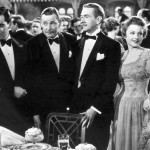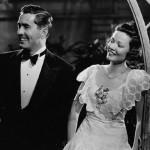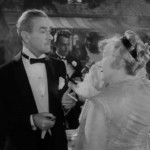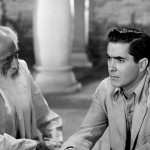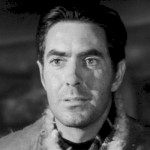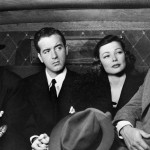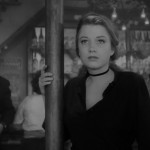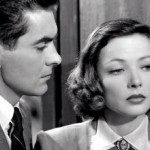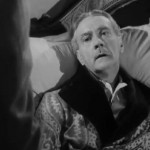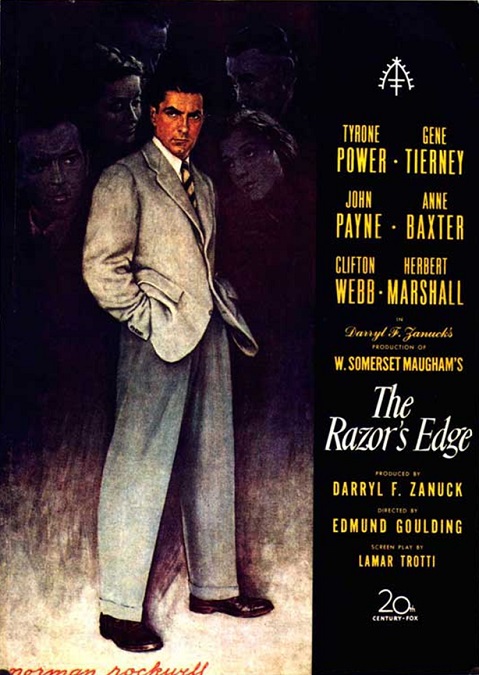
The Razor’s Edge – 1946
The Razor’s Edge reminded me vaguely of the Magnificent Ambersons, in that it followed the lives of young rich people as they grew, falling in and out of love with each other. There were victories and tragedies, friends and enemies, both wise and foolish decisions, and a span of years which gave the tales being told a slightly epic feel. It starred Tyrone Powers, Jean Tierney, John Payne, Ann Baxter, Clifton Webb, and Herbert Marshall, all led by the direction of Edmund Goulding.
Powers played the male lead, Larry, a young man who has inherited a little bit of wealth, but who had plans to be a loafer for the rest of his life. Opposite him is Tierney, playing the role of Isabel. She desperately loves Larry, but wants a life of wealth and comfort greater than Larry’s small income will allow. Baxter plays Larry’s childhood friend, Sophie. She comes from poor stock but is unashamed of her lower station in life. Payne plays Gray, the man who loves Isabel and is independently wealthy. Webb played the role of Templeton, Isabel’s fastidious and obviously gay uncle who, at times, was such an old queen that I was surprised the Hayes Code allowed him to be in the film. And finally, we have Marshall rounding out the cast as Somerset Maugham, Larry’s long-time friend, who just happened to be the author of the book upon which the Razor’s Edge was based.
The movie did a great job of setting up the audience to believe, in the beginning, that Isabel was sensible and good natured, and that Larry was the shiftless lay-about who was in search of something that seemed to be missing from his life. For most of the film, Larry’s main motivation was to “find himself”, and by the end of the film, we find that he is really the good and noble man, while Isabel turns out to be evil. On the whole, the film’s overall message was that there are things in life that are more important than money, like honesty, kindness, generosity, and compassion: a simple message, to be sure, but a good one.
Larry, having left Isabel to travel the world, search for his true self, and find meaning in his existence, ends up in a Himalayan monastery. There he finds peace and discovers the rewards of a virtuous life. Actually, the scene where he leaves the monastery was a little cheesy. As he exits the hut on the top of the mountain, he walks through a shot of glorious clouds with the brilliant rays of the magnificent sun bursting through them. The overly-dramatic music swelled as he ended his sojourn to return to the life he had abandoned, filled with a new-found respect for the universe. OK, Goulding, tone it down.
Tierney’s portrayal of Isabell was, to me, a bit lack-luster. She had the potential for a few juicy, dramatic moments, but for whatever reason, the opportunities were missed. Even in her final scene, when she realizes that the love of her life is leaving her for the last time, that all her schemes to get him back have failed, she could have had a wonderful break-down, maybe even a fantastic tantrum. But no. No tears and fearful acceptance are what we are given. But this spoke more of the writing and directing than Tierney’s performance.
The film’s real stand-out performance was that of Ann Baxter. The character of Sophie started as almost a background character, but in the second half of the movie, she took an unexpected left turn. Her husband and newborn child are killed in a car accident, and she turns into a raging alcoholic. She is found in a seedy dive, living as a prostitute. She has several wonderful dramatic scenes that had “Oscar-winning performance” written all over them, and yes, she won the Academy Award for Best Supporting Actress that year.
The movie seemed to have a split personality that I ultimately didn’t mind: the difference between innocence and experience. The characters all mature over the years, some into better versions of themselves, others into worse, and it was interesting to follow the unexpected changes in each of them.
This proved true for all the main cast except one which I’d like to mention for a different reason. From beginning to end, Uncle Templeton is shown as the same prissy homosexual, a fact that could not be explicitly stated. He was fussy, vain, overly coifed, haughty, and most importantly, an elderly bachelor. Some of his lines and the way Webb delivered them left little doubt as to the true nature of his character. He would say things like, “I admit, he is good-looking, and his clothes fit,” or “I do not like the propinquity of the hoi polloi.” I ask you, what else are we supposed to think? Everyone knows. Just don’t put a name to it.
But though the film was well-acted and fairly well-directed, I have to say that I found it an average piece of work. It was good, but not great. By the end, I felt no real emotional investment in any of the characters, with the possible exception of the tragic Sophie. There just wasn’t enough power behind the story-telling. Not that it didn’t take itself seriously, but maybe it would have benefited from taking itself a little more seriously than it did. We got drama, but for a Best Picture nominee, I would have liked to see drama!!
